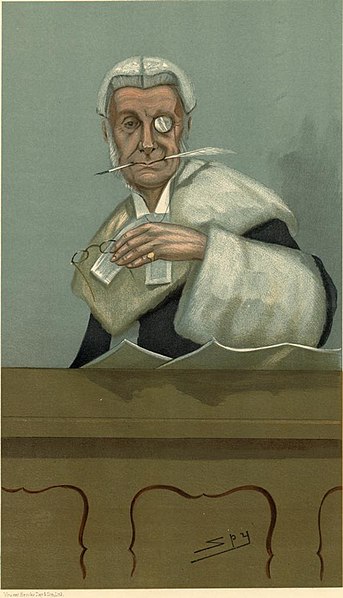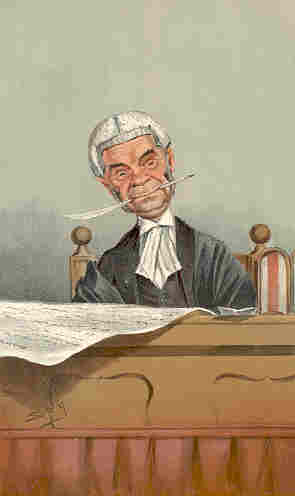
A conference at the Faculty of Law, Thammasat University on April 1 and 2 shows that constitutionalism and the rule of law are passionate realities, not just dry theoretical concepts.
The International Conference on Constitutionalism, the Rule of Law and Democratic Governance – Challenges and Prospects in Comparative Perspectives was presented by the School of Law, The University of New England, Australia, the Faculty of Law, Thammasat University, and the German-Southeast Asian Center of Excellence for Public Policy and Good Governance (CPG), Faculty of Law, Thammasat University. On April 1, the keynote speaker, Dr. Jaran Pukditanakul, referred to these realities during the question and answer period. A justice in the Constitutional Court of the Kingdom of Thailand, Dr. Jaran observed:
Some people tell me, “Oh, you’re a good judge, you help the country.” But others come to my house with fire or a bomb. That is the situation in this country.
Along with other presentations by experts from Australia, Japan, Singapore, Cambodia, and Indonesia, Dr. Pukditanakul’s speech, Judicial Review by the Constitutional Court for the Protection of the Rule of Law and Democratic Governance in Thailand, addressed the many ambiguous and paradoxical aspects of terms such as the rule of law. Most people think they know what it means, but their interpretations differ widely.
Avoiding confusions.
Introducing the keynote speaker on April 1, Associate Professor Narong Jaiharn, dean of the Faculty of Law, Thammasat University, reminded listeners that as the Kingdom starts to develop another new constitution, it is a good opportunity to avoid confusions and to see if basic principles of good governance have really been understood. The ultimate goal, Dean Narong underlined, is to help democracy in Thailand as well as international cooperation between academic institutions. Next Dr. Same Varayudej, international coordinator of the School of Law, the University of New England, Australia, spoke, praising Thammasat University for having
one of the most prestigious law schools in Thailand.
Dr. Same, who is a veteran barrister in private legal practice, has acted for the Council of State of Thailand. He told an anecdote about a Greek professor of international law who was asked by the United Nations to assist a country in North Africa to conform to international standards. In a draft report of his findings presented to the ruler of that country, the professor required that the government act according to the standard of democracy. The North African ruler replied that although Greeks such as the professor might believe that they invented democracy, in other parts of the world it is a relative term. In the second draft of his report, the professor replaced the word democracy with the term human rights, but the North African leader objected to that as well. Finally, the third draft required being in accordance with the standard rule of law. The North African leader heartily approved this version:
Perfect, because no one will know what that means.

Legal ambiguity.
Dr. Jaran seconded this theme with his measured, informed presentation. The title of his lecture contained a number of concepts, including judicial review, rule of law, and democratic governance, that touch upon political philosophy. All are controversial, vague, and have become the subject of disputes. After briefly tracing some decades of Thailand’s constitutional history, Dr. Jaran noted that in 1997, a constitution established two separate systems, the Administrative Court and Constitutional Court. The former reviews unlawful administrative actions or omissions; the latter performs a review of parliamentary draft bills and acts, as well as acts of government. Since 2007, the Constitutional Court’s authority has expanded, although its current jurisdiction is limited by a provisional constitution. Dr. Jaran remarked:
The new constitution is expected to be promulgated at the end of this year and it is hoped that its previous jurisdiction will be restored or even widened.
This would be essential because in democratic countries, laws as written cannot anticipate every possible development. These laws must be interpreted. Dr. Jaran is fully aware of criticism that claims that the Constitutional Court makes new laws instead of merely deciding what the existing laws mean. He declared thoughtfully:
I am of the opinion the Court is really only identifying what the law really is. Therefore, it only discovered, rather than invented, the law.

To back up his judgement, he cited Ronald Dworkin, Frank Henry Sommer Professor of Law at New York University and Professor Emeritus of Jurisprudence at University College London, who at a 2012 London conference on The Rule of Law as a Practical Concept stated:
Rule of law is not an all-or-nothing affair; so that nations that fail to obey its mandates in one respect are to be treated as tyrannies. The Rule of Law is aspirational and is therefore a matter of degree. My country, the U.S. fails to respect the Rule of Law when it holds detainees in Guantanamo without charge or trial for years and also, in my view, when it failed to ratify the Treaty of Rome accepting the jurisdiction of the International Criminal Court. But in other respects, including the rules of criminal procedure, the United States hews closer to what the rule of law ideally demands that many European nations do. We must ask not whether a nation accepts or denies the rule of law but when and how far it falls short of the rule of law.
He followed up this quote with another from Thomas Henry Bingham, Baron Bingham of Cornhill, (1933–2010), a British judge and jurist who served in the highest judicial offices of the UK as Master of the Rolls, Lord Chief Justice and Senior Law Lord. A valiant supporter of human rights, Lord Bingham wrote the prizewinning book The Rule of Law (2010). In it, citing the example of Nazi Germany, Lord Bingham maintains:
A state which savagely repressed or persecuted sections of its people could not in my view be regarded as observing the rule of law, even if the transport of the persecuted minority to the concentration camp or the compulsory exposure of the female children on the mountainside were the subject of detailed laws duly enacted and scrupulously observed.
Following this line of thought, Dr. Jaran agreed that a parliament cannot just legislate anything, There must be some rules, for example to point out that a fake trial is against the rule of law. Dr. Jaran suggested that the rule of law may indeed require the judiciary to declare parliamentary acts unconstitutional, as long as the review itself is constitutionally authorized and conducted legally. The guiding maxim must be:
The rule of law requires that no one be above the law.
He notes that many legal thinkers disagree on this point because it seems to place unelected judges above popularly elected lawmakers. Dr. Jaran argues that a system of check and balances is best:
Sovereign power should be distributed among various institutions and individuals in such a manner that no institution or person can assume absolute power because power tends to corrupt and absolute power corrupts absolutely.
The last-mentioned phrase is a famous maxim by the English Catholic historian and politician Lord Acton (1834–1902), which reads in a more complete version in his Historical Essays and Studies (1907):
Power tends to corrupt, and absolute power corrupts absolutely. Great men are almost always bad men.

Asked after his lecture was over whether Thai judges should be elected directly or indirectly by the people, Dr. Jaran said:
In my opinion, I see something inappropriate in the election system of this country. And judges have to be independent of any kind of gratitude to anyone, otherwise we would feel we have to return to any institution that helped us win the election. This would make the Constitutional Court partial, and it would be an even more serious situation. So I strongly disagree with that suggestion.
A second idea, that Thailand’s Constitutional Court be dissolved and merged with the Supreme Court of Justice, he finds somewhat agreeable, although highly unlikely because of the backlog of cases which already burden the Supreme Court. Finally, the notion that a legal example might be imitated from some other country, such as Korea, may not turn out to be applicable to the Kingdom.
When courts intervene.
Courts sometimes intervene to relieve damage done by extant laws, such as in 1954 when the United States Supreme Court, deciding the case of Brown v. Board of Education, declared racial segregation unconstitutional. Yet such courts
must realize that they virtually make law, and in that way they must be extremely cautious and careful not to go too far beyond legitimacy and the bounds of the rule of law. That is very difficult indeed.
Observing the above, Dr. Jaran concluded that despite disputes, judicial review, the rule of law, and democratic governance are interdependent ideals and matters of degree. Violent disagreements which can create what he terms a bipolar situation are not about law, but rather political values that must be settled by Thai citizens.

(all images courtesy of Wikimedia Commons)
